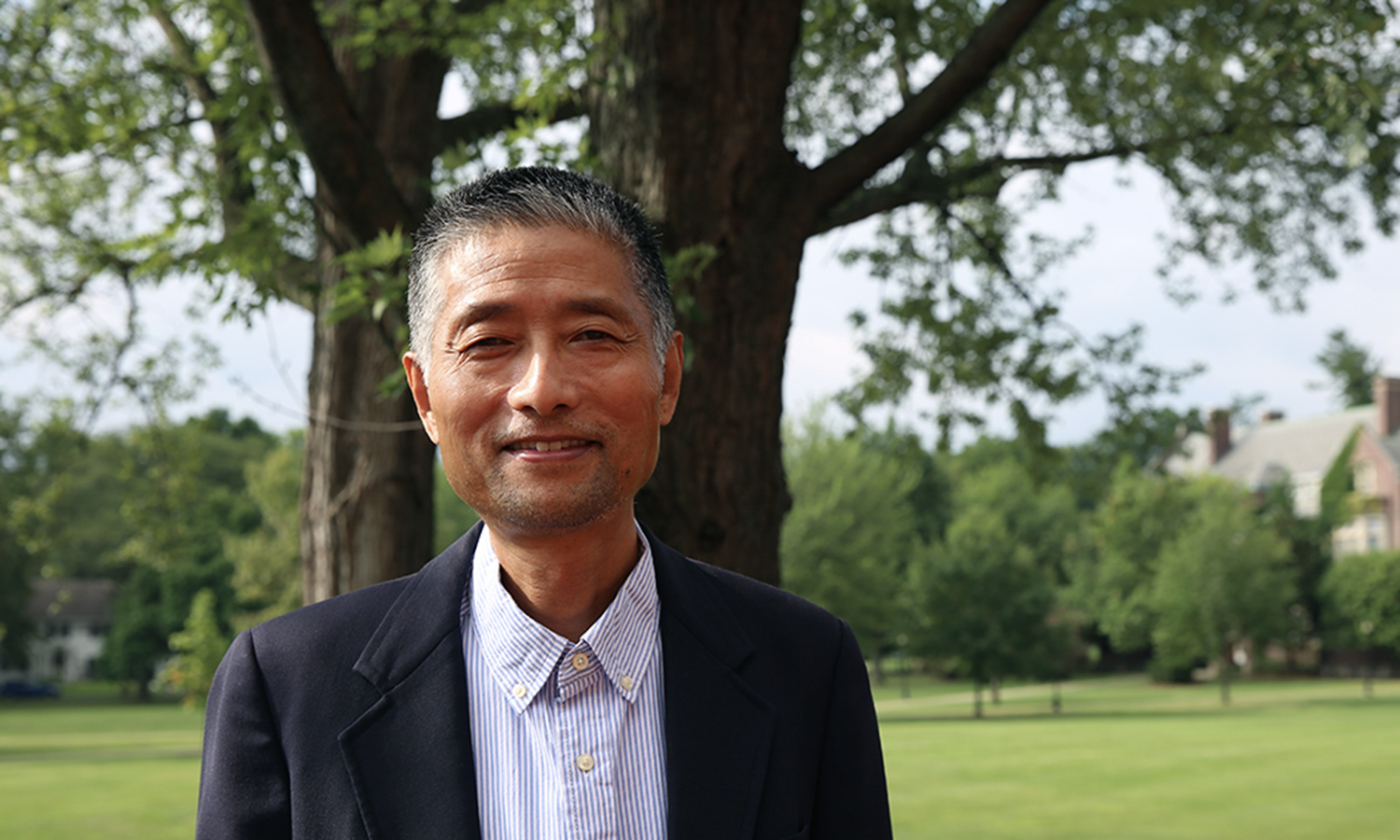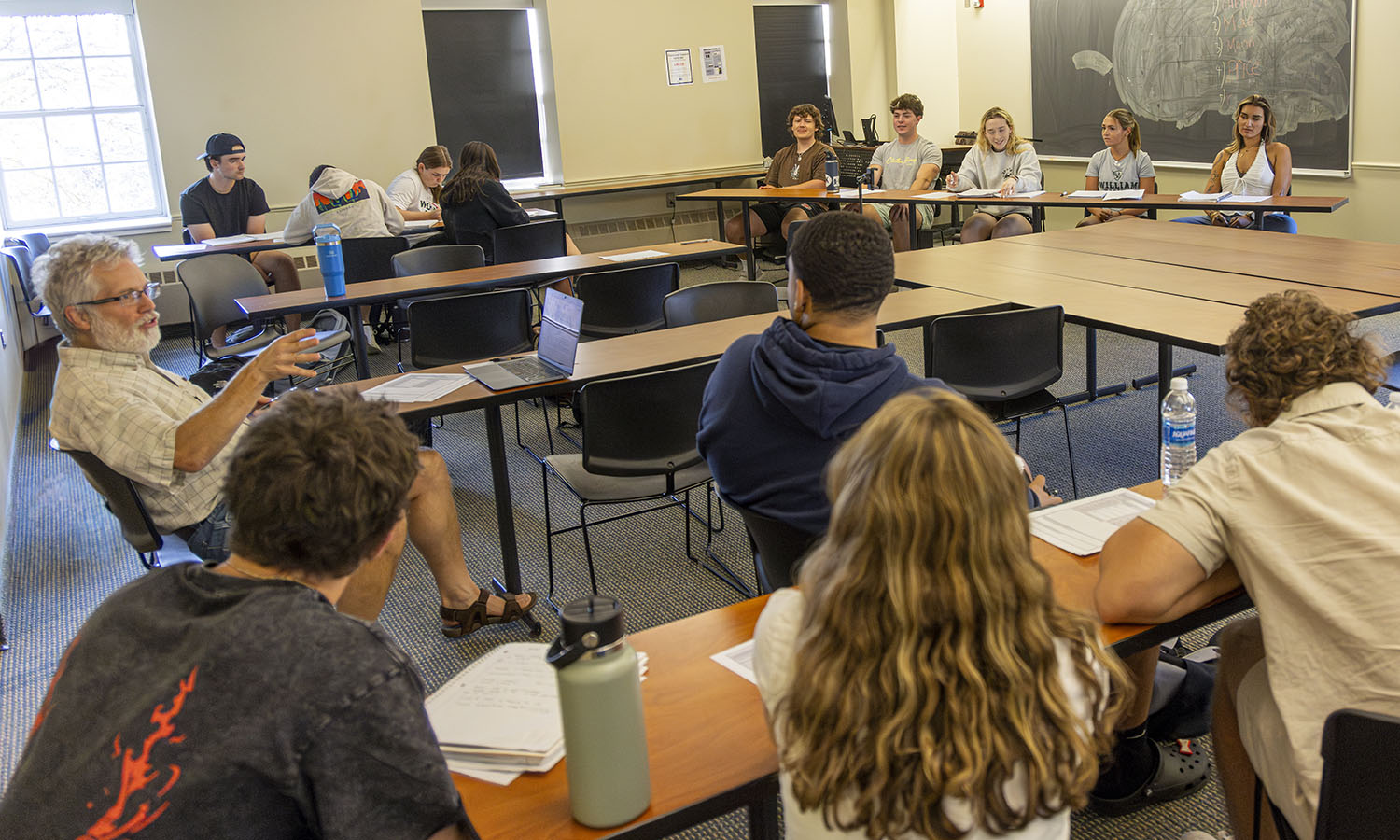
HWS News
6 December 2024 • Faculty Zhou Discusses U.S.-China Relations for Trump's Second Term
Recent articles examine how factors such as tariffs, conflicts in Europe and the Middle East, cabinet appointments, and Taiwan’s issue could shape the next president’s approach to foreign policy with China.
In three new articles published in the U.S.-China Perception Monitor, Associate Professor of Asian Studies Jinghao Zhou explores how the relationship between the United States and China could play out during President Donald Trump’s second administration. An expert in Chinese ideology, politics, religion and U.S.-China relations, Zhou is also the author of the 2023 book Great Power Competition as the New Normal of China-U.S. Relations.
In “The Untested Path of U.S.-China Rivalry Under Trump 2.0,” Zhou argues that while a more decisive and experienced Trump could put China in a tougher position, the competition between the two “will depend on the wisdom and courage of leaders from the two countries in navigating the complexities of global politics.”
Zhou examines this sentiment in context to three factors. First, Zhou says that Trump will leverage tariffs against China, further weakening its already struggling export-based economy and giving favorability to the United States while China’s congress has approved a massive stimulus package to reduce the country’s debt. Second, if Trump can negotiate an end to the conflicts between Ukraine and Russia and in the Middle East, he’ll be able to focus his foreign policy on China. Meanwhile, China has committed support for Russia and the Palestinian movement. Last, Trump’s choice of cabinet members, including for positions such as National Security Advisor and Secretary of State, will greatly impact his policy toward China.
“If Trump fails to learn from his first term, does not optimize his leadership style, improve ties with allies and Congress, and mend relations with domestic opponents in civil society, business, and media, his ambition of making America great again through the competition with China could very well end up as nothing more than an illusion,” says Zhou. “Nonetheless, he still has a chance of successfully competing with China over which nation—the United States or China—will lead global governance in the 21st century.”
While domestic issues were at the top of voters’ minds leading up to the 2024 Presidential Election, Zhou argues that competing with China remains central to U.S. national security and foreign policy. In “The “China Card” Remains the Core of Translating U.S. Domestic Issues into Foreign Policy,” Zhou examines how despite topics such as the rising cost of goods, wage stagnation and job insecurity can influence how the U.S. competes with China on the global stage.
“Ultimately, the effectiveness of the U.S. responses to China’s challenge will depend on how well the new administration balances pressing domestic concerns with strategic foreign policy goals,” Zhou says.
In “The Case Against an Imminent War on Taiwan,” Zhou states that while tensions are rising between China and Taiwan over the latter’s independence, war is unlikely. He cites challenges such as logistical hurdles due to the distance between the countries, corruption scandals in China’s military hindering readiness, and other options available to China including island seizure, blockade and bombardment
Zhou also writes of the United States not wanting a war between the two but would act in defense of Taiwan as it doesn’t accept China’s “One China” principle, which claims China’s ownership of Taiwan as another reason why war between the two is unlikely.
If Trump can fulfill his “promise to end the war in Gaza soon and mediate a peace deal between Russia and Ukraine after the 2024 election, the United States will be able to demonstrate a stronger deterrence posture against China’s ambitions regarding Taiwan and possibly push China to restore Deng Xiaoping’s reform and opening-up policy,” writes Zhou. “Accordingly, the unfinished task of unifying Taiwan may be postponed until global power shifts in China’s favor and the political frameworks between Taiwan and the mainland increasingly converge.”
Zhou earned his Ph.D. from Baylor University, M.Div. from Union Theological Seminary, M.A. from Wuhan University and B.A. from Nanjing University. He has taught courses in Asian Studies in various subjects including “China-the U.S.”



